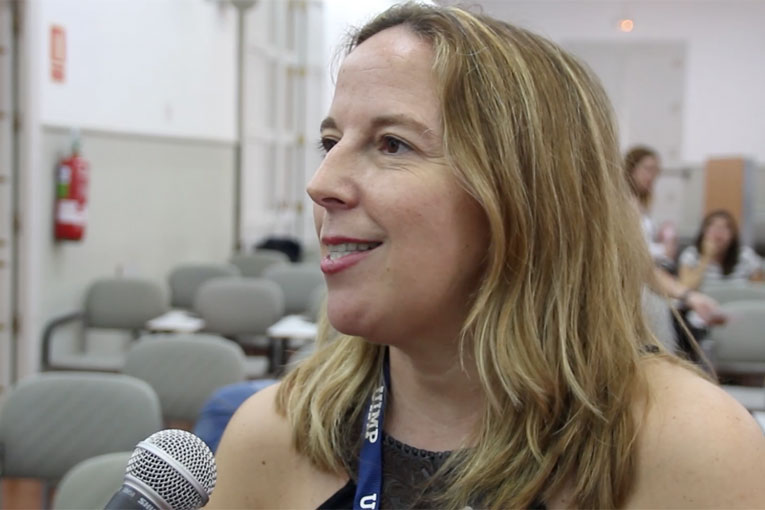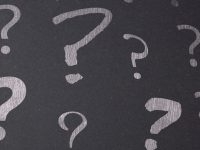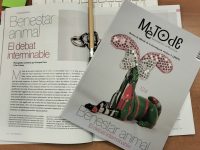|
Patricia Fernández de Lis is not a newcomer to science journalism, although Materia, the science news website she manages, was born just over a year ago. She wrote for El País for a long time and was editor-in-chief of the science section of Público. She was free to develop her love for science there, creating an award-winning space. From the ashes of the section, deceased alongside Público, Materia was born. It is a web portal where rigour and integrity are capital, and they expect to be an adequate alternative to all the pseudoscience on the Internet, as Patricia claims. But what is the situation of science journalism in Spain today? Is the web an appropriate channel for science communication? How is the relationship between scientists and journalists? Patricia knows first hand how difficult it is for an Internet project to survive today. And furthermore, how difficult it is to get a space for science in traditional media. During her intervention in the seminar «Science and the Press», organized by Mètode, we talked to her about these and other matters.
What are the qualities of a good science journalist?
I think a science journalist needs the same as any other journalist: curiosity and common sense. Those two things are common for any kind of journalism. But it is especially important for science, because without curiosity you will not be able to understand the basis of science, which is creativity, wonder, that which is new. And without common sense you will not be able to separate pseudoscience, bad science, surreptitious advertising or press releases from truly relevant scientific progress. Therefore, those are the two things they need. It is also helpful if the journalist really likes and reads science. And better yet if they have science education. But whether or not it is necessary for them to be scientists has been much talked about. I do not really care what they are. That is, if they are scientists, that is fine, but the main thing is they need to be good journalists.
But despite their importance, today’s landscape does not look promising for science journalists. Why do you think science journalists are vanishing from the office more than any other branch?
The problem is that during a crisis, and we are in the middle of a brutal one, not only economic but also of the newspaper model, most of the media try to focus on the information they compete on, instead of on the one that makes them different. It is a bit absurd, but if we look at it right now, big media devote almost all the space to politics, economy and sports, because that is what everybody is interested on. There is also space for gossip, for example. Anything that passes for entertaining. And unfortunately the information that makes them different, like science, health or environment, tends to disappear. Educated and informed science journalists are disappearing from the office, there are less people who can take relevant information from the news tsunami. This situation is bad for everyone.
And the vanishing of science information from the media can lead to believe that the audience in general is not interested in science, do you think?
Sure, but it is completely false. In fact, when I was editor-in-chief of the science section of Público, which was very large –we had four to six science pages every day–, we always managed to put two science articles among the ten most visited articles on the website. As a footnote, the day Spain won the football World Championship, the top ten of every website was football. It looked like there was nothing more important for Spanish people than that [laughs]. However, that day in Público, the seventh space in the top ten was for an article on a European Space Agency mission. That is, people are very interested in science, because science is life. Science is discovery, science is curiosity. Science is everything. But in media, unfortunately, there is less and less information everyday, and they think people is not interested any more. But that is not true. The fact is people who are interested in science are elsewhere, in places like Mètode or Materia. They look for information in different places because they know they will not find it in the big media.
You were editor-in-chief of the science section in Público. It won many awards and positioned the newspaper as a reference in science information. But after the closing of Público, how did the idea for Materia appear?
The idea for Materia appeared after the terrible death of Público. We did not have a job and received a lot of feedback through social networks and mail from people who missed Público. A lot of people also wrote because they did not want science to disappear from the media. And after reflecting upon those messages, which came not only from friends and relatives, but from loads of anonymous readers, we thought we could and should keep doing our job on our own. Because we thought no other medium was going to give science the kind of space it had on Público. That is when we created Materia. We did it online because we were convinced it is the present of science communication. Moreover, we thought there was an obvious space for Materia. There is a lot of communication and a lot of blogs, but maybe science news and information in Spanish were needed online. So we decided to launch the project.
You defend that the present of science communication is on the Internet. However, some experts are still reluctant to this medium. What disadvantages do you think the Internet has in front of traditional media?
The Internet opens many doors to communication for young journalists, to communicators, to speak directly to readers. It is a very powerful medium. The biggest disadvantage is that it is impossible to distinguish good research from pseudoscience. We need tools to be able to distinguish bad science communication from good science communication. Before, for better or for worse, we had four or five benchmark newspapers, radio stations or TV channels we knew we could trust. There has been an emergence of projects, which is a good thing, because they make it easier to be up to date, but it is also bad because there are also mediocre attempts. There is a lot of bad science. The fundamental problem for me is that one, noise and pseudoscience tries to leak through media cracks. And it takes some interest on the part of the reader to read science; it is not easy. It is not reading about the last crime that has been committed, about a goal by Cristiano Ronaldo or about the love affairs of a socialite. It requires a bit of attention on the part of the reader because it is so complex. That is why sometimes people are seduced by sensational, easy information. We have to fight everyday to use those same cracks pseudoscience uses. Because it would be better if we are the ones making it through them.
In Mètode we study the relationship between the two cultures, science and journalism, and how they nurture each other. In Materia, what is your experience when collaborating with scientists?
We appreciate it, it is very positive. I believe there are more and more scientists who are conscious of the transforming power of the media and want to contribute and help that transformation. The truth is, we have a very good relationship with them. Clearly, being an Internet publication, with fast changes and reader interaction, scientists lose control over their research and feel uncomfortable because of that. Sometimes they ask to revise the text, or ask for changes or want you to delete the comments they do not like… I mean some of them still feel a little uneasy. But that is changing, especially with younger scientists, who are now communicating through their own blogs. There are more scientists every day who are used to communicate themselves.
Andrea González Garrigas. Journalist.
© Mètode 2013.
|
|
«A science journalist needs the same as any other journalist: curiosity and common sense»
«There are more and more scientists who are conscious of the transforming power of the media and want to contribute and help that transformation»
|

 Mètode
Mètode




